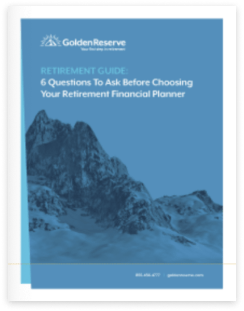4 Biggest Retirement Mistakes to Avoid in 2024
Retirement should be a time of relaxation and enjoyment, not financial stress or regret. Unfortunately, many retirees…

The Price Could Be Greater Than You Think
Imagine you’re in the lightning round of a game show and the question is, “How much does your financial planner cost?” Quick, the clock is ticking! What’s the answer?
Oh no. You don’t know?
If that exercise gave you anxiety, you’re not alone. It’s a seemingly simple question, yet most people couldn’t tell you off the top of their head what they pay their financial planner. Unfortunately, that’s often by design. As the financial planning industry grows more complex, so too do the ways in which your financial planner is compensated. That’s especially problematic when many of those methods may not incentivize planners to act in your best interest. And no one has more at stake than retirees. Here’s what you need to know.
The Methods to the Madness
When you researched and selected a financial planner, you likely encountered terms like flat-fee, fee-based, and AUM. Let’s review some of the most common:
Commission-Based:
These planners earn commission on the products they sell.
Fee-Only:
Fee-only planners charge an hourly rate to develop your plan, which can quickly add up.
Percentage-Based:
These advisors charge a percentage based on the amount of assets they manage for you (hence the term “assets under management” or AUM).
Flat-Fee:
Planners that work on a flat fee charge one set rate for their services.
So, what’s the best model for retirees?
Fee-only can be problematic if the model’s unpredictable price tag dissuades you from undertaking important planning or making necessary updates to your estate and financial plan as life changes. Percentage-based can be risky because you may be steered toward investments that may not fit your risk tolerance.
The answer may not be one model, but a hybrid. At Golden Reserve, we operate on a flat-fee model and earn commission on the annuity and insurance products we sell. These are the only products on which we earn commission because we refuse to offer any investments that aren’t optimized for retirees to safely invest with limited fees. Second, we value the transparency of a flat-fee model. It’s an important tool for eliminating risk for clients in or near retirement. Which brings us to our next point.
The Cost of Hidden Risk
The cost of your financial planner could be more than just what you pay each month or year in fees. Your financial planner’s actions (or lack thereof) could potentially have an even greater cost.
We’re talking about asset preservation, and unfortunately, many planners don’t make it part of their retired clients’ plans. So, what is it, and why is it so important?
Asset preservation focuses on helping you keep more of your hard-earned money by protecting against some of the most common stumbling blocks in retirement, including taxes, long-term care, and as we mentioned above, market risk and investment fees. What makes these areas so risky is that you may not even realize you have a problem until it’s too late.
Take taxes, for example. Without a strategy to minimize your tax burden, you could be paying more in taxes than you need to. Or worse, a widowed spouse could end up unexpectedly paying higher taxes at the single rate, significantly affecting their estate and standard of living.
But perhaps even more overlooked than taxes is the cost of long-term care, which on average runs over $90,000 annually for a private room. With long-term care insurance becoming increasingly scarce (and less affordable), fewer planners discuss with their clients how they’ll pay for care in the event they need it (and statistics show 70% of the 65+ generation will). That’s unfortunate because no one can afford not to plan.
The good news is, there are more options than just self-funding, buying expensive insurance or sticking your head in the sand. One such option is legal tools like an asset protection trust, which can shield your estate from the cost of long-term care if put in place within a requisite amount of time before you need care. A knowledgeable planner can help identify if you’d be a good candidate for such an option and connect you with an experienced estate planning attorney.
The Best Protection is the Right Kind of Planner
If you’re wondering why many financial planners don’t focus on asset preservation, it’s not because they’re bad apples. They simply don’t have the tools or experience in this area. And that’s precisely why you need an expert specialized in planning for this stage of life. You need a retirement planner.
At Golden Reserve, retirement planning is all we do. In addition to a team of retirement financial planners, we also have a Certified Estate and Trust Specialist and CPA on staff to ensure that we can help you best navigate your options. Plus, should you need a trust, our elder care law partner will develop one for you at no additional cost.
The bottom line? Don’t forget to take the risks above into account when calculating the true cost of your advisor. Consider consulting with a retirement planner to make safeguarding against them part of your plan. The only thing better than knowing exactly how much your planner costs is the peace of mind that you’ll be protected against future costs. That’s how you really win the game.

Share this article
Retirement should be a time of relaxation and enjoyment, not financial stress or regret. Unfortunately, many retirees…
Retirement is a significant milestone, a time to reap the rewards of years of hard work and…
All our working lives, we dream of what we’ll do with the money we’ve saved and the…
Recently, a publication targeted toward financial advisors published an article wondering if advisor fees based on assets…